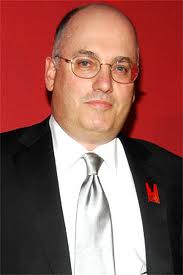Podcast: Play in new window | Download
Please click above to listen to full interview.
 I spoke with an old friend Trevor, a former Director of Research at a Hedge Fund of Funds. In college, a mutual friend of ours imaged a radio show named “What the Fuck Do you Do?” in which he interviewed people in jobs that nobody else understood the name of, or the function of. This interview is in that spirit. He spoke about the business, lucking into one of the best bosses in finance, and then leaving it all. This interview is also in the spirit of Trevor himself, a recovering banker trying to figure out what’s next for him.
I spoke with an old friend Trevor, a former Director of Research at a Hedge Fund of Funds. In college, a mutual friend of ours imaged a radio show named “What the Fuck Do you Do?” in which he interviewed people in jobs that nobody else understood the name of, or the function of. This interview is in that spirit. He spoke about the business, lucking into one of the best bosses in finance, and then leaving it all. This interview is also in the spirit of Trevor himself, a recovering banker trying to figure out what’s next for him.
What is a Fund of Funds?
Trevor: Hi my name is Trevor and I used to be the director of research for a fund of funds.
Michael: Trevor, thank you for agreeing to be part of Bankers Anonymous. I’m wondering when you said you’re a fund of funds manager, what percentage of people that you ever talk to, who you identify yourself as a fund of funds manager say, “Oh, I know exactly what that is,” or do people have no idea what you’re talking about?
Trevor: People have no idea what I’m talking about.
Michael: What do you usually say?
Trevor: And it’s usually a stultifying opener when I say – people say what do you do and I say, “I work for a fund of funds, fund of hedge funds.” Three-quarters of the time there’s a blank stare and then one-quarter of the time people actually ask a follow-up question about what it is. But the topic of finance generally sends people running away from the conversation. So I usually lie now when I tell people what I do.
Michael: What’s your backup answer now, zoo keeper?
Trevor: I raise bees, African honey bees which produce a very spicy variety of honey.
Michael: Awesome. I know what a fund of funds business is more or less, although I’ve not worked at one, but is it easy to describe what that means?
Trevor: It is. It is a collection of funds run by other people managed by the fund of funds operator. Usually I give people the analogy of mutual funds because most people know what mutual funds are. The business model is if I was going to create a fund of mutual funds, so instead of you investing in mutual funds directly and picking ten mutual funds, you could invest in Trevor’s fund of mutual funds and by investing in my one fund you get exposure to however many underlying mutual funds I choose to put in the portfolio.
The fund of hedge funds is the same idea but instead of underlying investments being in mutual funds, the investments are in hedge funds. That’s usually when people freak out because they’re like “Oh my god, hedge funds; now you’ve lost me. Aren’t those all terrible?”
Michael: Are you part of the evil hedge-fund world?
Trevor: Yeah.
Michael: I’m familiar with that, where people hear fund of funds and suddenly there’s a blank stare and everybody’s like “Oh my God look shiny object over there.”
Trevor: And, to interrupt you, then the smart people say, “Oh, so that’s an extra layer of fees, so basically you pay fees to the hedge funds and then I pay fees to you, and then there’s multiple layers of fees. So it’s not really a business, it’s just a set of fees.” That’s what the savvy, cynical, smart people usually observe right away.
Michael: The classic criticism of hedge funds themselves is they’re not really an asset class but a compensation scheme. As a derivative of a hedge fund you could be a compensation scheme on top of a compensation scheme.
Trevor: Yes.
Michael: But having been in the world, do you think the added expense is worth it?
Trevor: The firm that I worked at launched multiple products going back over the last twenty years and their long-term results easily beat the S&P500 with better performance characteristics, as net of all fees.
Michael: Performance characteristics: Volatility, Return, what else am I worried about – draw down I guess; how much did you lose in a bad year?
Trevor: Yup, and then one more which is correlation to the index. If the index is going one way the fund of funds is not necessarily having the same pattern. So there are fund of funds which have been able to outperform the broad-based market net of all fees over a five, ten, fifteen, twenty-year time frame.
Michael: And your fund did that?
Trevor: Yes.
Michael: So post-credit crisis in 2012 is the world different for fund of funds?
Trevor: I think there will always be a need for fund of funds because institutional investors want access to alternative investments and part of that is access to hedge funds. A lot of those programs don’t have the resources to research hedge funds, and invest in them, and monitor them. So if you’re a 200 million dollar endowment for a secondary school or small university,
Michael: Basically, tiny.
Trevor: And you allocate twenty percent to hedge funds, so you have 40 million dollars going into hedge funds. And of that, you have half of that going into long/short equity hedge funds, you can’t hire the staff to adequately research and monitor it. So middle-sized endowments will always have a need for a gatekeeper to help them.
Then a lot of larger institutions often hire funds of funds to create a starter kit and they will put together fund of funds for the larger college endowment, and then the endowment will eventually take it over once they’ve learned the ropes.
And the last category that’s probably never going away is if you’re a high net-worth individual but you’re not super, ultra-rich, you can’t afford to create your own diversified portfolio hedge fund because they generally have a one million dollar to five million dollar minimum, so if you, say, only have ten million dollars to invest and you put twenty percent in hedge funds which is two million dollars, you can invest in two hedge funds, maybe, which as everyone knows you don’t want to take on concentration risk in really any asset class. So the high-net individual but not ultra high-net will always need a fund of funds to create a diversified pool.
Michael: Is that essentially the customer base of your business, medium-size endowments and high but not ultra high-net worth individuals?
Trevor: When the firm first launched it was mostly high net-worth individuals, which I think is if you go around to your friends and say, “Hey I’m starting this business, will you invest?” And then over time they generate the track record and credibility, their shift was towards institutional clients. The current composition is ninety-five percent institutional and five percent individuals.
Michael: I’m sorry, ninety-five percent institutional and five percent individuals?
Trevor: Right, so the shift over time was dramatically towards institutional money meaning pension plans, charities, endowments, foundations as opposed to individual investors.
Michael: I obviously know you quite well and I know you have a mathematical background but can you describe what it’s like to work for a fund of funds? What’s the main skill set that’s useful?
Trevor: I think everybody approaches selecting managers differently and there are places that run Monte Carlo simulations and all sorts of back testing and modeling and then there’s people on the totally other end of the spectrum who just meet with a manager and think, “I like that guy.”
Michael: More a feel on what’s a good manager or good investor.
Trevor: Yeah, and both approaches probably work fine, as long as you do the one that makes sense to you. Our firm fell somewhere in the middle where we did a lot of number crunching and we would look at past track records and look at when managers had losses how did they respond to those losses. Hedge funds generally have access to leverage so when the economic environment deteriorates does the manager double down to take on more risk in hopes of making all this money back quickly; or if they have losses and a bad environment do they reduce exposure and risk and crawl back slowly? Looking at quantitative information to assess how a manager responds to risk and how much risk they take on.
Michael: So it’s a mix. It doesn’t sound like rocket-science math.
Trevor: No, there’s some standard deviation and draw downs but probably high school level math.
How Do You Get a Job at a Fund of Funds?
Michael: In 2002 you were not in the financial world. How does one get a job at a fund of funds shop?
Trevor: I think it’s a strange path. Probably very few people coming out of college have heard of this industry. So I happened to get into it by a sequence of events where my uncle had worked for a guy who ran the company and he hired me to do some software programming. Then I joined running operations and gradually made a transition to the investment side while doing the CFA program. It was a very idiosyncratic route.
Michael: The work environment was somewhat idiosyncratic also?
Trevor: Yes, I think I worked for one of the nicest people in finance, certainly shocking and refreshing to find someone who is very principled and fair and entertaining. I remember an early conversation where the boss said, “You know, I’d really like to take Fridays off in the summer, but if I take Fridays off what am I going to do about all the employees? Maybe they can work half a day. Oh fuck it, just everybody gets Friday off.” But that was also tempered with if you made a mistake he would come down very hard on you. It was very high expectations but it was a very fair environment.
One great memory which is that my boss used to come into my office and he would say, “You know, when I had my first consulting job, my boss would come in and he would say, ‘I’m going to give you six months to work on this, and if it turns out well you get full credit. And if it goes badly, you’re fired.'” And I’d think ha-ha that’s great, good story. He told me this anecdote maybe three or four times over the course of two weeks, and the fourth time it dawned on me; those are the rules. If it goes well, I get full credit, and if it goes poorly, I’m fired.
Walking Away From It All
Michael: Okay, you’re no longer fulltime with the same fund of funds and as I understand it you’re interested in other things. Why would you do that?
Trevor: Great question. A friend of mine told me he would come up to New York and shoot me if I lived there for more than five years.
Michael: So it was fear that drove you away.
Trevor: At year eight I was getting worried that would actually happen.
I love spending time out of doors and I love farmers markets and I love a slightly slower pace of life. It’s very hard to achieve that in New York where your apartment can be very small and dark unless you’re extremely successful. People don’t generally host dinner parties or hang out in their apartments which I think is why I think a lot of the public spaces in New York are so great. Peoples’ existence in their own apartments is not a great hosting venue. But all that being said, I wanted to move out West and have access to the out of doors.
Michael: While maintaining your anonymity for this program, we’ll just say you’re in California, somewhere in California. They’ll have to try to find you. I think I’m hearing you say actually when it came down to money versus friendships you found the friendship part more compelling. This sounds very un-banker-like of you.
Trevor: Certainly I would rather have more money than less money. I did have this idea I would work hard and save up money for a while and then leave and do something else. I’m in the process of executing that transition and certainly some days I wake up and I think what an idiot; if I had stayed and followed the traditional succession plans, I’d be a gazillionaire.
Michael: But even making the choice to leave and get into a different mode of life, it’s still hard to think: “Wow, but I could have had this money!”
Trevor: I think it’s hard to take a path where you’re relatively senior and successful and basically go into another industry or set of interests where you don’t have any credibility or expertise necessarily, but you think it’s a more satisfying and rewarding way to spend your time. I’ve discussed this with my former boss and he wisely wrote back and said, “Money means nothing if you are unhappy.”
Michael: Wise words.
Trevor: If it’s a calling that’s good for you, and there are certainly plenty of people in finance who genuinely enjoy it. Then I think it’s a great career track. But money corrupts and it’s an industry that can lead people to stay working in it when they don’t get a whole lot of meaning out of it.
Post read (3709) times.






